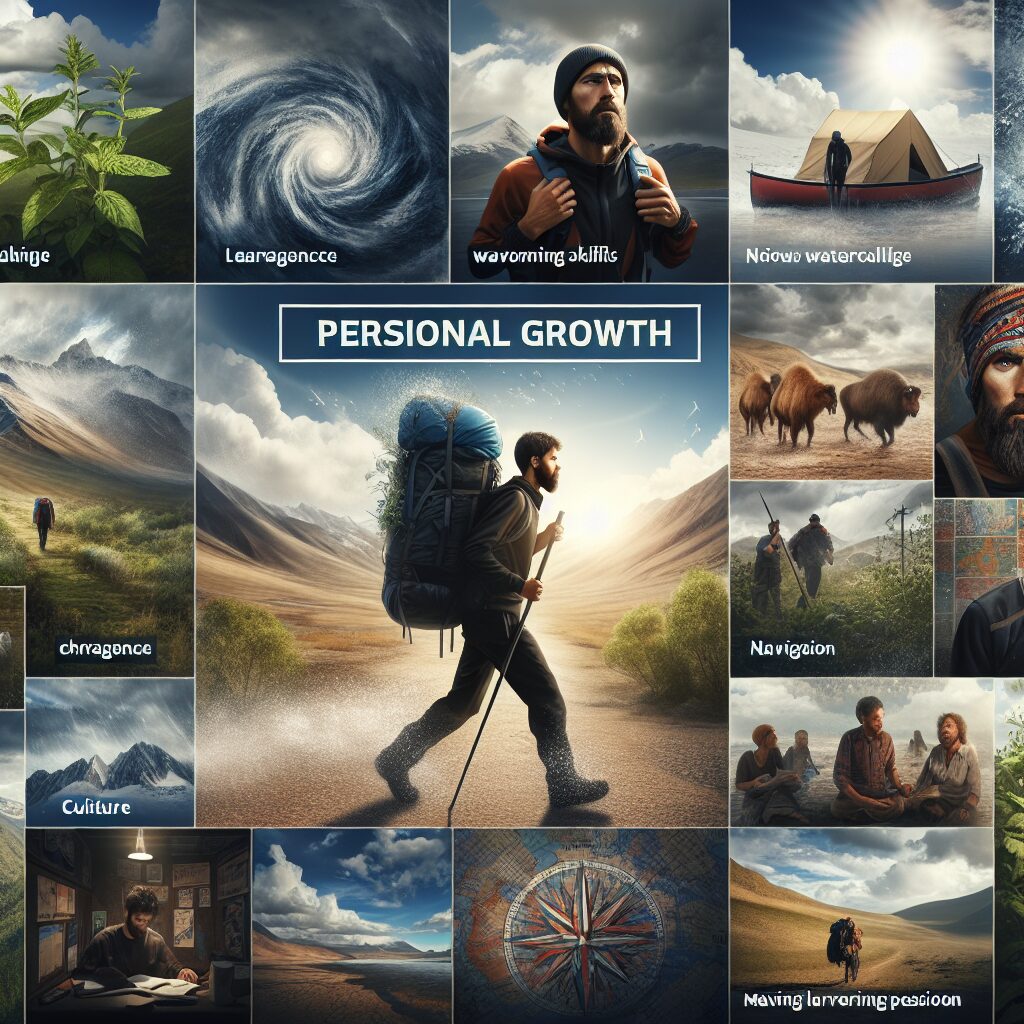Healthcare Choices for Digital Nomads is a topic gaining increased relevance as more individuals choose a nomadic lifestyle. Defined as people who work remotely while traveling, digital nomads have the freedom to explore different locations around the world. This lifestyle brings about unique challenges, particularly in the realm of healthcare. With international borders, diverse healthcare systems, and various coverage options, digital nomads must carefully consider their healthcare choices to ensure they have access to the necessary healthcare services wherever they may be.
One key impact of the digital nomad lifestyle on healthcare choices is the need for international health insurance. As digital nomads often travel between countries with different healthcare systems, having comprehensive health insurance that covers them globally becomes essential. This allows them to receive medical care without worrying about the high costs or limitations of local healthcare systems. Additionally, digital nomads may face unique hazards or health risks depending on their destinations, such as tropical diseases or extreme sports injuries, making it crucial to have insurance that offers appropriate coverage. These factors highlight the importance of exploring healthcare insurance options tailored specifically for digital nomads.
Moving forward, it is essential for digital nomads to be aware of the key takeaways regarding healthcare choices. Firstly, understanding the healthcare systems and coverage options of different countries is crucial before embarking on a nomadic journey. Digital nomads should research and compare the cost and quality of healthcare in the countries they plan to visit or stay in for an extended period. Secondly, obtaining international health insurance that covers a wide range of medical services and emergencies is vital for peace of mind and financial security. This ensures that digital nomads can access quality healthcare regardless of their location. Lastly, maintaining a healthy lifestyle, including practicing preventative measures like vaccinations and regular check-ups, is crucial for long-term wellness while leading a nomadic lifestyle. These key takeaways will be discussed in further detail, providing digital nomads with valuable insights and guidance for navigating their healthcare choices.
Key Takeaways
1. Different countries have various healthcare systems, and digital nomads need to consider their options carefully to ensure coverage while living and working abroad.
2. Temporary health insurance plans are available for digital nomads who don’t need long-term coverage, providing flexibility and affordability.
3. In some countries, healthcare is significantly cheaper than in others, making it an attractive option for digital nomads to receive necessary medical treatments or procedures.
4. It is essential for digital nomads to research healthcare coverage options in their home country, as some plans might suspend coverage while residing abroad for extended periods.
5. The emergence of telemedicine has become a valuable resource for digital nomads, allowing them to consult with doctors remotely, receive prescriptions, and even access specialists when needed.
What are the Best Healthcare Choices for Digital Nomads?
1. Researching Healthcare Options
As a digital nomad, it is crucial to research and understand the healthcare options available to you. Start by evaluating the healthcare systems and insurance policies in the countries where you plan to stay. Look for information regarding the level of care, costs, and coverage provided.
2. Local Healthcare Providers
It is essential to locate reliable healthcare providers in the areas you will be residing. Research local hospitals, clinics, and doctors to find those that are reputable and offer the services you may require, such as emergency care, routine check-ups, or specialized treatments.
3. International Health Insurance
Considering investing in international health insurance is highly recommended for digital nomads. With this type of coverage, you can access medical care in various locations without worrying about the cost. Look for insurance plans that provide comprehensive coverage, including emergency medical evacuation if needed.
4. Telemedicine Services
A significant advantage for digital nomads is the availability of telemedicine services. These online platforms allow you to consult with doctors remotely, providing convenience and accessibility while on the road. Research different telemedicine providers and choose one that suits your needs best.
5. Medical Evacuation Services
In case of medical emergencies that require immediate evacuation, having access to reliable medical evacuation services is crucial. Consider purchasing a membership or insurance plan that offers medical evacuation coverage, ensuring you can be transported to a suitable medical facility quickly and safely.
6. Vaccinations and Travel Health Advice
Before embarking on your digital nomad journey, consult with healthcare professionals to ensure you are up to date on all necessary vaccinations for the countries you plan to visit. Additionally, seek travel health advice to understand any health risks, preventive measures, and medication requirements specific to your destinations.
7. Wellness and Preventive Measures
As a digital nomad, maintaining your overall wellness should be a priority. Stay active, eat nutritious meals, and take preventive measures such as regular handwashing and getting enough sleep. Consider incorporating travel insurance plans that cover wellness activities and preventive healthcare services.
8. Documentation and Portable Medical Records
When traveling as a digital nomad, it is essential to have all your medical documents and records in order. Keep copies of important documents, such as your passport, health insurance cards, and vaccination records. Consider keeping electronic copies as well, stored securely in a password-protected folder or a secure cloud service.
9. Networking with Other Digital Nomads
Reach out to other digital nomads and join online communities to gather insights and recommendations regarding healthcare choices. These networks can provide valuable advice on healthcare providers, insurance plans, and specific healthcare experiences in various destinations.
10. Staying Informed and Adapting
Stay up to date with the latest information about healthcare systems, regulations, and requirements in the countries you visit. Adapt your healthcare choices accordingly to ensure continuous access to quality care and coverage throughout your digital nomad lifestyle.
Conclusion
What are the Best Healthcare Choices for Digital Nomads?
As a digital nomad, your healthcare choices play a critical role in ensuring your well-being and peace of mind while exploring the world. By researching healthcare options, finding reliable providers, securing international health insurance, utilizing telemedicine services, and taking preventive measures, you can confidently navigate through various destinations, all while maintaining your health and safety.
Frequently Asked Questions
1. Can digital nomads access healthcare services while traveling?
Yes, digital nomads can access healthcare services while traveling. Depending on the country they are in, they may have to purchase travel insurance or local health insurance to receive coverage.
2. What types of healthcare services are available for digital nomads?
Digital nomads can access a variety of healthcare services, including routine check-ups, vaccinations, emergency care, and even access to specialists if needed.
3. How can digital nomads find healthcare providers in foreign countries?
Digital nomads can find healthcare providers in foreign countries by doing thorough research online, utilizing expat communities, or seeking recommendations from other travelers.
4. Do digital nomads have to pay for healthcare services out of pocket?
The payment process for healthcare services can vary depending on the country and the individual’s insurance coverage. Some digital nomads may have to pay out of pocket, while others may be covered by their insurance provider.
5. Are pre-existing conditions covered for digital nomads?
Pre-existing conditions may or may not be covered for digital nomads, depending on the insurance provider and policy. It is important for digital nomads to thoroughly review their insurance coverage before traveling.
6. Can digital nomads receive prescription medications while traveling?
Yes, digital nomads can receive prescription medications while traveling. They may need to consult with local healthcare providers or pharmacies to access the medications they need.
7. Is healthcare quality consistent across different countries for digital nomads?
Healthcare quality can vary across different countries, even within the same region. Digital nomads should research the healthcare systems of the countries they plan to visit and consider purchasing insurance that covers healthcare in higher-quality facilities.
8. How can digital nomads maintain healthcare continuity while traveling?
Digital nomads can maintain healthcare continuity while traveling by having electronic copies of their medical records, maintaining regular communication with their healthcare providers, and scheduling necessary appointments in advance.
9. Are there specific health and safety precautions digital nomads should take?
Yes, digital nomads should take health and safety precautions such as having travel insurance, receiving necessary vaccinations, practicing good hygiene, and being aware of potential health risks in different locations.
10. Can digital nomads access mental healthcare services while traveling?
Yes, digital nomads can access mental healthcare services while traveling. Many countries have mental health professionals or organizations that provide support and counseling services.
Final Thoughts
As digital nomads embrace a location-independent lifestyle, healthcare choices become an important aspect of their overall well-being. While navigating healthcare services in different countries may seem daunting, with proper research and preparation, digital nomads can ensure access to necessary healthcare services. It is crucial for digital nomads to understand their insurance coverage, maintain continuity in medical records, and prioritize their health and safety. By being proactive and informed, digital nomads can confidently pursue their dreams while taking care of their health along the way.
Remember, the healthcare landscape can vary greatly worldwide, so it’s essential to stay updated on any changes in regulations, insurance options, and available healthcare facilities in the countries you plan to visit. With the right planning and resources, digital nomads can thrive while prioritizing their health, and enjoy the flexibility and freedom the digital nomad lifestyle offers.











